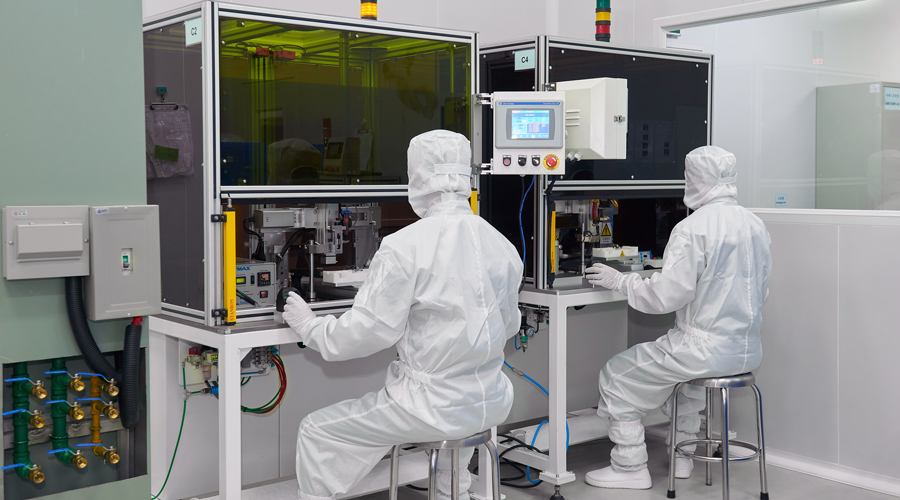Clean it? Unfortunately, it’s not that simple.
Contact us
Sending Email...

PRODUCTION NEWS
What do you do if a cleanroom isn’t clean?
A cleanroom should, by definition, be clean. Its entire purpose is to be a place where components can be manufactured in a guaranteed contaminant-free environment. So what do you do if a cleanroom isn’t clean? Clean it? Unfortunately, it’s not that simple.

A cleanroom is a production space with a controlled level of environmental pollution such as dust, hair and airborne particles. There are different classes of cleanroom, depending on what they are used for. Cleanliness requirements are expressed in terms of the number of permitted particles of a particular size per cubic meter of air.
Nolato uses cleanrooms for the manufacture of components used in medical applications, where cleanliness is crucial. They are also used, for example, in consumer electronics, which often sets extreme requirements for the surface finish of components.
To keep the cleanroom environment within these set levels, a cleanroom is a separate space, entirely self-contained from other areas of the factory using airlocks. Those working in cleanrooms have to wear protective clothing such as hats, beard protectors, special overalls and shoe covers. There are also restrictions on what they may take into the room and what they may do while there. The ventilation system has highly efficient filters and the equipment is designed to be easy to keep clean.
Cleaning isn’t enough
But what happens if it turns out that the room is not clean, and if, upon inspection, the components show signs of foreign particles? Cleaning doesn’t suffice; most important of all is finding out why it isn’t clean. Where are the foreign particles coming from, and how do you stop them from occurring?
Last year, Nolato GW in Dongguan, China, found some disturbances in cleanliness in a small number of components, despite the cleanroom meeting the necessary requirements. The decision was taken to initiate a ‘lean’ project based on ‘Kaizen’ and ‘Six Sigma’, focusing on the causes rather than just addressing the symptoms.“Our goal was to fully meet our own exacting internal requirements, which involved achieving a continual level of zero components with foreign particles,” explains Robert Chen, Assistant General Manager at Nolato GW Dongguan and the project’s team leader.
The project began with a detailed preliminary study of the current status, comparing the findings with the desired outcome. The project categorized any contamination found, reviewed previous particle counts and analyzed different sources of defect, which were ranked by priority using a calculation system based on frequency and severity. The causes were presented in a fishbone diagram to aid the analysis of causal connections and identify the actual root causes of the problems.
Started asking questions
“On this basis, we started asking questions based on 5 Whys and soon saw a pattern of causes of the contamination,” explains Robert Chen. “Based on these patterns, we were able to establish an action plan with measures to eliminate the various sources of contamination.”
Five of the Six Sigma phases have now been completed and follow-ups have shown that the problems have been resolved; the cleanroom was clean once again. In true ‘lean’ spirit, Nolato GW Dongguan’s management is now continuing to work on quality management issues by carrying out regular ‘Gemba walks’.
“Although everything is now running well, we’re carrying on with continuous improvements to ensure we remain one step ahead,” says Robert Chen.
- Cleanroom production
- Medical Solutions
- Medical Excellence
- Nolato Magasin
- Nolato GW Dongguan
You might also be Interested in
SERVICE
Cleanroom production
MEDICAL EXCELLENCE
Creating world-class operations
GROUP COMPANY